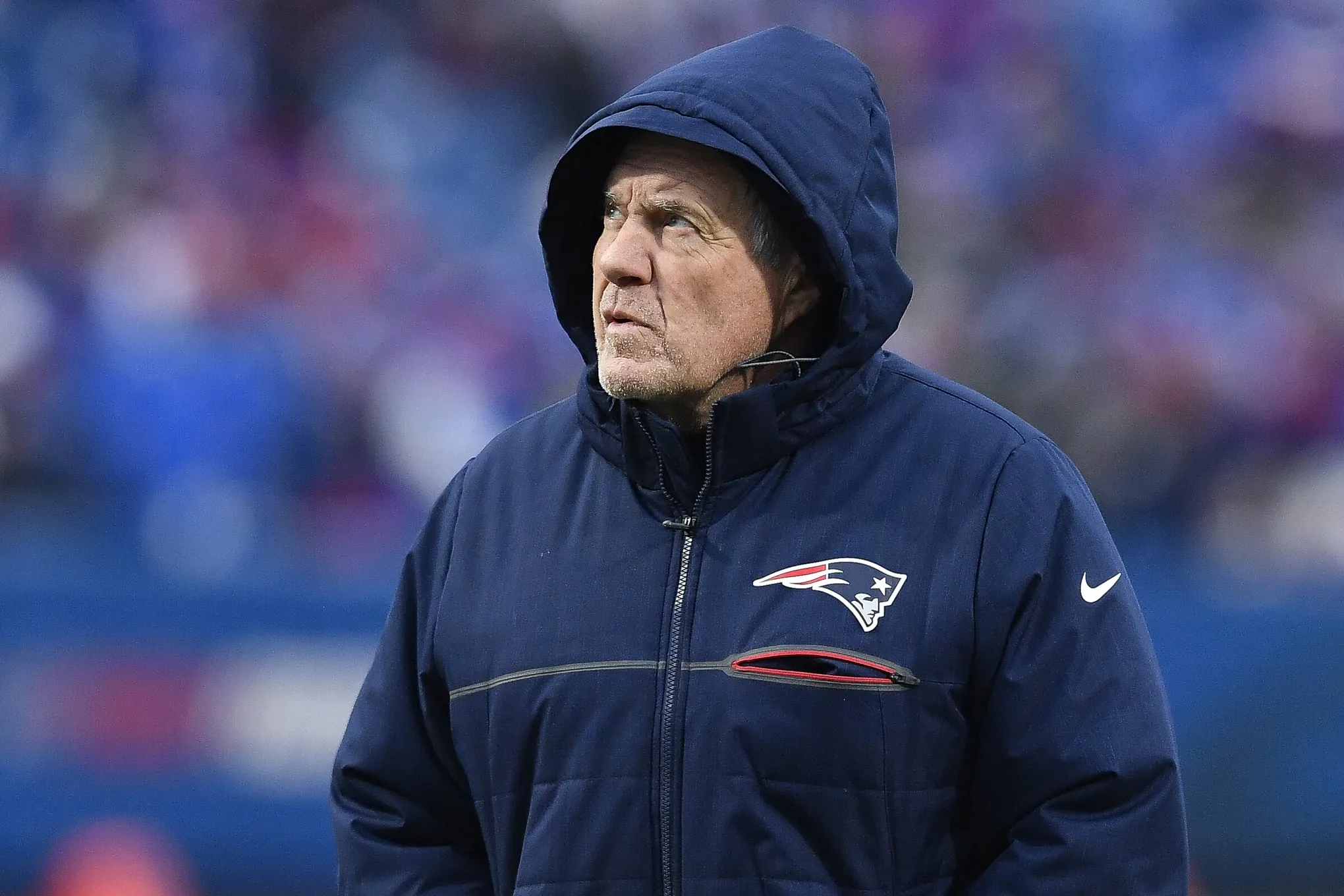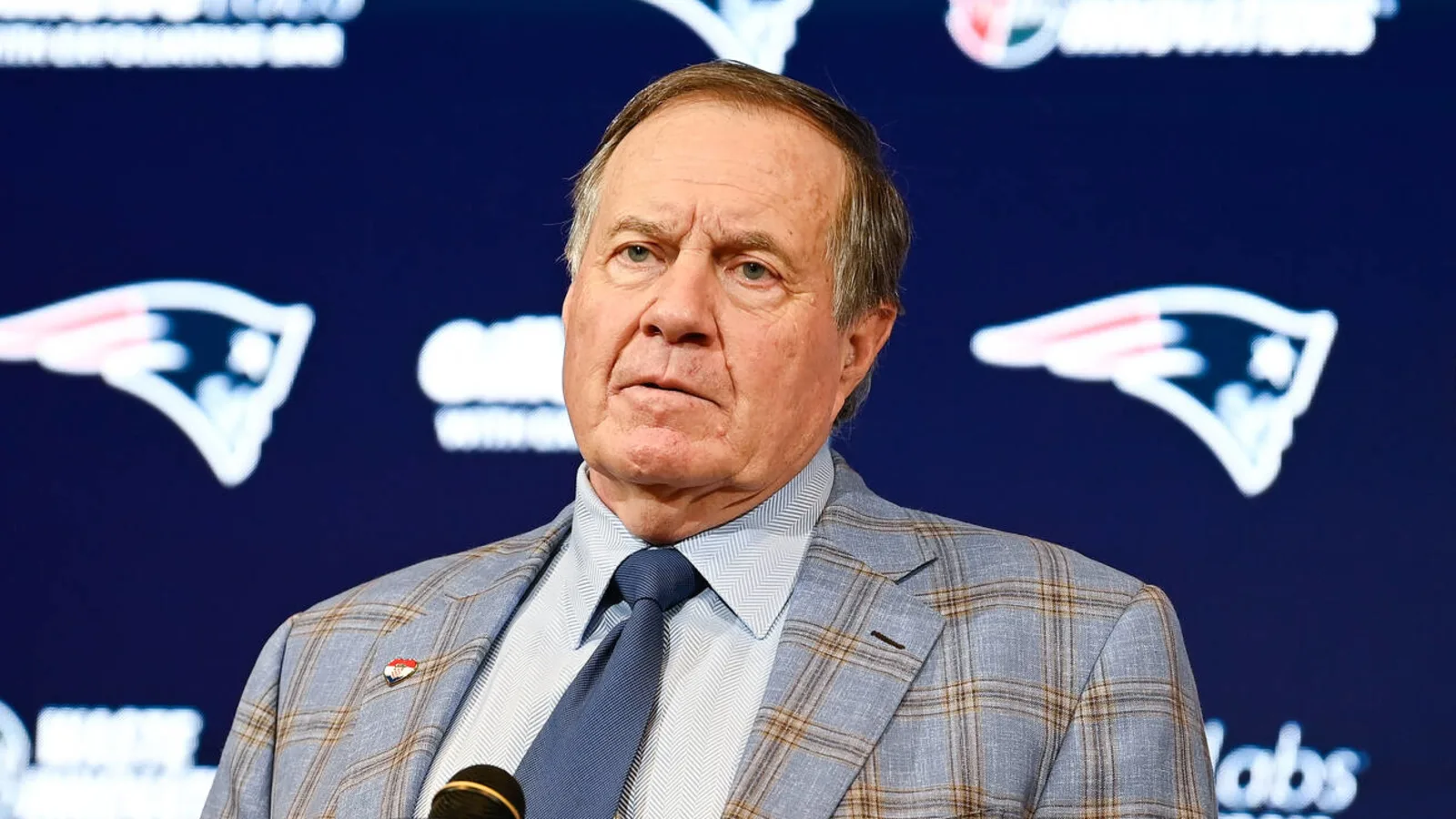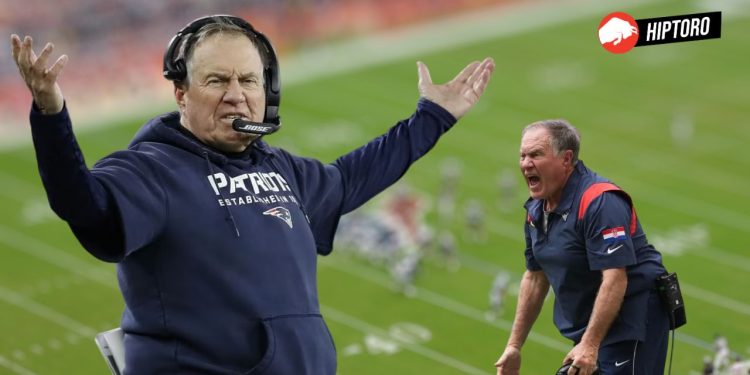In the high-stakes world of the NFL, the departure of a legendary figure such as Bill Belichick from the New England Patriots not only marks the end of an era but also raises eyebrows about the real reasons behind such a significant change. As recent reports uncover, the narrative of a mutual decision masks a more complex reality. This article delves into the undercurrents of power, decision-making, and the future direction of one of the league’s most storied franchises.

The Rift Within Robert Kraft and Bill Belichick’s Colliding Visions
Bill Belichick’s exit from the Patriots was portrayed with all the trimmings of mutual respect and gratitude typical of a storied partnership. However, sources close to the situation, as reported by the Boston Globe, paint a picture of growing tensions and disagreements at the heart of the Patriots’ decision-making process.
Despite Bill Belichick’s unmatched success, including six Super Bowl victories, his latter decisions on coaching and personnel increasingly conflicted with input from his staff, suggesting a rift was forming within the organization’s upper echelons.
The core of the discord seems to stem from Bill Belichick’s unilateral approach to decision-making, which eventually led Patriots owner Robert Kraft to reconsider the Hall of Famer’s role within the team. Kraft’s emphasis on collaboration and communication as pivotal reasons for the team’s new direction underlines a significant shift away from Belichick’s autocratic style.
If Bill Belichick never joined the Patriots, how successful would the franchise have been? pic.twitter.com/V7aWYMcfUC
— Jeremy A 🧀 #GoPackGo (@Jeremy3Tears) March 6, 2024
The Aftermath: A New Dawn in Foxborough
With Bill Belichick’s departure, the Patriots turned a new leaf by appointing former player and defensive assistant Jerod Mayo as the head coach. This move signals a clear intent towards fostering a more collaborative environment, possibly correcting the course after the turbulence of recent years.
Moreover, the Patriots find themselves in a promising but challenging position. With over $260 million in cap space and the third overall pick in the upcoming draft, the team has a unique opportunity to rebuild and revitalize its roster. The offensive lineup requires a complete overhaul, while the defense needs an infusion of youth and talent.
The responsibility for these critical decisions falls on Eliot Wolf, the de facto general manager with a commendable track record and lineage, hinting at a hopeful future for the franchise.

Looking Ahead: Navigating the Challenges
As the Patriots navigate through this transition, the focus will be on how effectively the new leadership can leverage the available resources to usher in a new era of success. The lessons from the past, particularly the friction between Bill Belichick’s methods and the organization’s evolving ethos, will undoubtedly influence the team’s approach moving forward.
The departure of a figure as iconic as Belichick is a pivotal moment for any franchise, marked by uncertainty but also the promise of renewal. As the Patriots look to the future, the legacy of Belichick’s tenure and the lessons learned from its conclusion will loom large, shaping the team’s identity and strategies in the years to come.
In the competitive cauldron of the NFL, the Patriots’ journey post-Belichick offers a fascinating case study of adaptation and change within a high-performing sports organization. As the team embarks on this new chapter, all eyes will be on Foxborough to see if the Patriots can translate this period of transformation into sustained success on the field.

Source: Fansided









